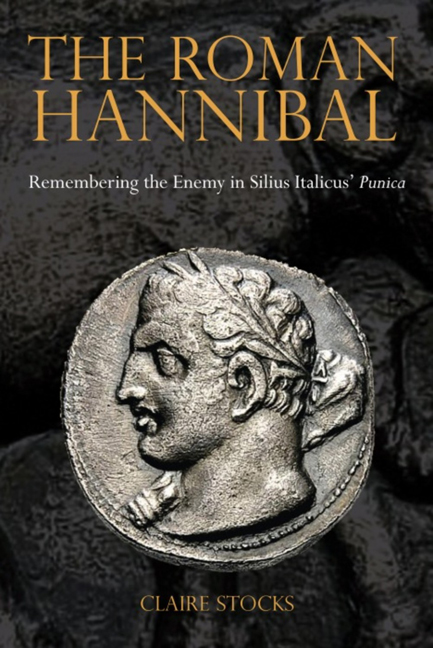Book contents
- Frontmatter
- Contents
- Acknowledgements
- Texts and Translations Used
- Introduction: Silius Italicus and the Roman Hannibal
- Chapter One The Roman Hannibal Defined
- Chapter Two Before Silius: The Creation of the Roman Hannibal
- Chapter Three Silius' Influences
- Chapter Four Epic Models
- Chapter Five Silius' Roman Hannibal
- Chapter Six Out of the Darkness and into the Light
- Chapter Seven Hannibal's Decline after Cannae: Separating Man from Myth
- Chapter Eight Imitators and Innovators
- Chapter Nine Band of Brothers
- Chapter Ten The ‘Lightning Bolts’ (Fulmina) of War
- Chapter Eleven The Man and his Myth: The Self-Defined Roman Hannibal
- Conclusion: The Crossing of the Worlds: The Move from Internal to External Narrative
- Bibliography
- General Index
- Index locorum
Chapter Three - Silius' Influences
- Frontmatter
- Contents
- Acknowledgements
- Texts and Translations Used
- Introduction: Silius Italicus and the Roman Hannibal
- Chapter One The Roman Hannibal Defined
- Chapter Two Before Silius: The Creation of the Roman Hannibal
- Chapter Three Silius' Influences
- Chapter Four Epic Models
- Chapter Five Silius' Roman Hannibal
- Chapter Six Out of the Darkness and into the Light
- Chapter Seven Hannibal's Decline after Cannae: Separating Man from Myth
- Chapter Eight Imitators and Innovators
- Chapter Nine Band of Brothers
- Chapter Ten The ‘Lightning Bolts’ (Fulmina) of War
- Chapter Eleven The Man and his Myth: The Self-Defined Roman Hannibal
- Conclusion: The Crossing of the Worlds: The Move from Internal to External Narrative
- Bibliography
- General Index
- Index locorum
Summary
Livy and his uiri (59 bc–ad 17)
In evaluating the Hannibal of Silius Italicus’ Punica we must be aware of the influences at work behind him. As an epic, the Punica's most overt influence is the Virgilian epic tradition (discussed in chapter four), although all of the authors discussed in chapter two could have been influential texts for Silius’ epic. Among those Hannibal texts pre-dating Silius which survive, however, there is one which merits singular attention, because its influence upon his epic is obvious to discern: the third decade (Books 21–30) of Livy's Ab Urbe Condita.
Livy's Ab Urbe Condita is historiography; Silius’ Punica is epic. The inherent nature of these different genres naturally leads to the accentuation of some aspects of the Roman Hannibal above others in each text, but it does not detract from the fact that we have a Hannibal who is recognisable in both. The concerns related to comparing an epic with historiography should not be ignored; the primary literary motives of Silius and Livy are, of course, different. But a comparison of each author's representation of Hannibal does not necessitate a comparison of genre. Rather, a comparison of the two can function as an example for the wider evolution of the Roman Hannibal.
Livy and Silius: Structuring the Hannibalic War
As the most extensive prose text on Hannibal, Livy's history, though itself influenced by Polybius and other (now lost) historiographies, is frequently perceived as Silius’ main historical source for his Carthaginian general. Yet enough divergences from the Ab Urbe Condita exist in the Punica to illustrate that Silius’ Hannibal is no regurgitation of Livy's exemplum. One of the most apparent differences, and a difference which does necessitate at least a cursory consideration of the variant genres, is the structure of these two Hannibalic narratives. Livy's main account spans ten books, merely a fraction of his opus, whilst Silius’ covers seventeen – the entirety of his text. Livy's Cannae, the pinnacle of Hannibal's military achievements, is recounted two books into his narrative, whilst Silius makes it the mid-point of his epic. These, then, are two Hannibal narratives, but with significantly different beginnings, middles, and ends.
- Type
- Chapter
- Information
- The Roman HannibalRemembering the Enemy in Silius Italicus’ Punica, pp. 35 - 52Publisher: Liverpool University PressPrint publication year: 2014



